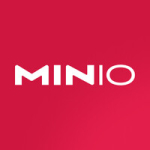What is our primary use case?
TGen is a nonprofit biomedical research institute. Our focus is primarily on genomics, translating discoveries in the field of genomics into treatments for patients.
It is central to our data storage of scientific data. We sequence the human genomes of folks with different diseases, primarily cancer but also other disorders, e.g., rare childhood disorders and people with mitochondrial diseases as well as neurological diseases. When you do this, it generates a considerable amount of data. Each time that a whole genome sequence is run, you generate anywhere from four to eight terabytes of data. For example, if you are looking at 1,000 patients, that can be anywhere from four to eight petabytes of data. TGen has about seven petabytes of storage being used for storing these genomes, which is a fair amount.
Isilon is an on-prem, scale-out storage. The nodes are linked together through a back-end high-speed interconnect.
We are running current versions of software on the node. It has versions now. The nomenclature is sometimes not the easiest to follow, because they still like to rebrand things.
How has it helped my organization?
It has given us the capability to focus on our prime objective, which is science, without having to necessarily be concerned about the back-end infrastructure that powers it. This is something we are always looking to achieve: Being able to focus on our prime mission without having technology get in the way. Scientists don't want to learn all about your storage system. They just want to do their science.
It is a critical piece for storing scientific data for our Institute. It is where we put our most valuable and precious data. We also leverage it for work on administrative data, spreadsheets, Word documents, etc. So, it is flexible. We access it via NFS and SMB. Those are the two primary methods of access that we use along with some others, such as S3 for some particular use cases.
Deploying and managing storage at a petabyte scale using Isilon is extremely simple. The user interface for management tasks is intuitive. The documentation is thorough and good, and if you get stuck, then the support is very capable. Overall, I have confidence that we can easily deploy, manage, and maintain systems without needing a huge amount of expertise to facilitate them.
PowerScale has helped us by consolidating the data without having it dispersed. Prior to this solution, we would have many different physically separate storage solutions. To do the science, sometimes data needs to go from one place to another. Moving your data at a petabyte scale, or even at hundreds of terabytes, is very time-consuming and expensive. By having the consolidation within these clusters, it has enabled us to very easily access and compute data without having to push it around to a bunch of different places.
We have a "thinly provisioned" workforce. One of the crucial aspects is that we can continue to scale a solution without having to add more humans to take care of it.
What is most valuable?
There is a reason that we chose this platform to store this priceless data. We know it is resilient. It also provides data protection that helps me sleep at night.
One of the most important factors about it is you can manage a lot of storage without a lot of people. Therefore, ease of management is really important for us because we are a nonprofit. We don't have a huge IT staff to support a pretty substantial IT infrastructure. So, ease of management is always a really crucial consideration.
Another aspect of the management that is super important is having the CloudIQ feature to monitor performance and other data remotely. We have four clusters that we manage. Having all those clusters, being able to have a single dashboard to take a look at the health of everything every morning, helps out a lot.
One of the nice things is that they have several different node types spread all the way from super high performance, flash-based storage nodes through more of what we consider an archive tier. So, we are able to use technologies, what Dell EMC has labeled SmartPools that will tier data automatically between different types of storage. So, we can ensure that hot data resides on the high-performance storage. Whereas, once data has gotten colder, then it can be pushed off to the low-performance storage to help control costs.
We have used the solution’s support for the S3 protocol, but in a limited use case. We are looking to expand that because we are doing more work towards cloud-based solutions. So, having the flexibility of S3 is important as we design new workloads that will be more cloud-centric. They will be able to use that protocol to access data on nodes without necessarily having to go back and refactor everything.
It is good and efficient when maximizing storage utilization. The operating system behind it, called OneFS, provides granularity, data protection, and control. So, you can actually adjust the amount of overhead being consumed for your data protection, depending upon what your needs are. It is pretty efficient at keeping data protected. At the end of the day, that is one of the most important things: Knowing that your data is safe.
Dell EMC keeps adding more features to the solution’s OneFS operating system. We have been iterating with them for quite some time. The solution is continually improving and becoming more robust and reliable. One of the latest things that really helped us out was the ability to perform upgrades without having cluster-wide outages, which is huge because we don't want to shut down operations unless we absolutely have to. Having that was a really big win for us. This saved us time. More importantly, it has kept our labs functioning during upgrades, as opposed to having shut down sequencers for a day while we go through and upgrade everything, which is important.
What needs improvement?
Something that still could be improved upon is adding additional node types of different sizes to facilitate a better way to run in distributed offices. For example, we have a lab up in Flagstaff, but they don't have a lot of IT infrastructure. Therefore, it is not really appropriate to run this system at their location. So, we run it down here in Phoenix. It would be nice if there was a smaller solution that we could deploy up there that was still as cost-effective as the bigger solutions.
The thing that they are working on now, and we are following closely is more native cloud integrations. The way that we envision workloads in the future is around moving compute to data instead of the other way around. So, we would like to have a single pane glass to manage storage across a variety of different platforms, including native cloud. That would be awesome.
For how long have I used the solution?
We were using PowerScale before Dell EMC even bought Isilon. So, we have been using it for some time now.
What do I think about the stability of the solution?
We have run this product for so many years now. I can count on one hand the number of times where we have had any kind of issue that impacted availability. Usually, it turned out not to be the cluster but something else. It is extremely robust and continues to function.
We are not super aggressive in patching or anything. We believe that stability is number one. Availability is just of the most critical importance so that is really where we focus.
What do I think about the scalability of the solution?
Once you have set up your initial cluster, adding more capacity to it is extremely easy. It is so easy that one of our salespeople added a node to the cluster. Having a salesperson do something technical is always a little bit interesting, but they didn't have any problems at all. "Boom," and it works.
This is one of the nice things that goes back to that whole ease of management. Being able to add additional capacity is pretty simple. You just buy the nodes and plug them in, as long as you have enough of the right kind of node types. However, if you meet all that criteria, it is that easy to do.
Since it can scale so easily, as long as I have money to buy more nodes, I can grow it as big as I need to. That is important in our business. As sequencing technologies continue to evolve, and as those technologies evolve, the amount of data generation never gets smaller. It just always seems to get bigger. This is one of the absolute key aspects: We can grow on demand without having to forklift stuff.
I have done forklifting, and it is a drag. I don't want to do that again. We want to just keep being able to grow as we need to ensure our customers have the resources that they need to do their work.
How are customer service and support?
I have worked pretty closely with their engineers over a number of years. They have implemented several different items that we have suggested.
The technical support is excellent. They have good support teams within Dell EMC, but also the VARs that we use have been extremely good at helping us as well. We kind of have multiple different angles of support, and that is one of the reasons that we continue to invest in Dell EMC. They have a model that we can rely on for getting the right answers.
I would rate the technical support as a nine out of 10, because nobody is perfect.
How would you rate customer service and support?
Which solution did I use previously and why did I switch?
We got our first cluster in 2008. Before that, we were using JBODs connected to Linux hosts. This was a homegrown solution. Frankly, there wasn't really anything available at that time that could meet our needs which didn't cost millions of dollars. So, we went from something that was good enough to something that was much better.
We switched because we needed something that scaled much larger than what we could build and comfortably support. That was the number one reason. Number two was, at that time, I was still doing all the technical work, and I was the one building it. I had too many other things to do. So, I needed to find something that could be supported by other people, not just me. This was really getting something that we could run in a more enterprise-type fashion, as opposed to something that we built because we had to and there weren't any other options.
Today, we have two individuals responsible for storage. Not just this storage, but any other storage systems that exist. Previously, while the storage was a lot smaller, it still took about four of us working on it. By having a single platform, where we can run a variety of workloads on it, this enabled us to not have to continually grow our storage administration staff, even though our data footprint increased many fold over the years.
How was the initial setup?
It was straightforward. There wasn't anything super complex about it.
We just deployed a new cluster last year. It took around three to four months before it was really cranking in full production. Once they are running in full production, they are adding value.
What about the implementation team?
Even to this day, if we still run into something that we are not sure about, we can call support or get local support, who generally get things addressed quickly and to our satisfaction.
What's my experience with pricing, setup cost, and licensing?
Since I have to manage all the budgets, I always want things to be less expensive. However, I would say the pricing is fair. Their costs are in alignment with their competitors. It is a good value for the money.
Like anything else, it could always be less expensive. That would be great. At the same time, I would like to make sure that they keep innovating.
Which other solutions did I evaluate?
We went pretty much straight to the Isilon product. At the time, there were no other products available that did what that product did. They were kind of unique.
We keep going back to them even though there are other products now that report to have similar characteristics. We keep going back to them because it has been such a good experience. We have a high degree of confidence in Dell EMC being able to deliver a product that meets our needs. It is cost-effective and helps me sleep at night because a lot of the data is precious. Sometimes, you get samples that you would never be able to get again, where they are kind of a one-off thing. If you lose them, then they are gone forever. We have to bear that in mind. That is really why we continue to invest in this solution.
What other advice do I have?
I would rate it as nine and a half out of 10. One of the main reasons that we have been successful as an institute is because we have back-end infrastructure, e.g., scale-out storage. This lets scientists focus on doing science, which is really important.
Which deployment model are you using for this solution?
On-premises
Disclosure: PeerSpot contacted the reviewer to collect the review and to validate authenticity. The reviewer was referred by the vendor, but the review is not subject to editing or approval by the vendor.



















